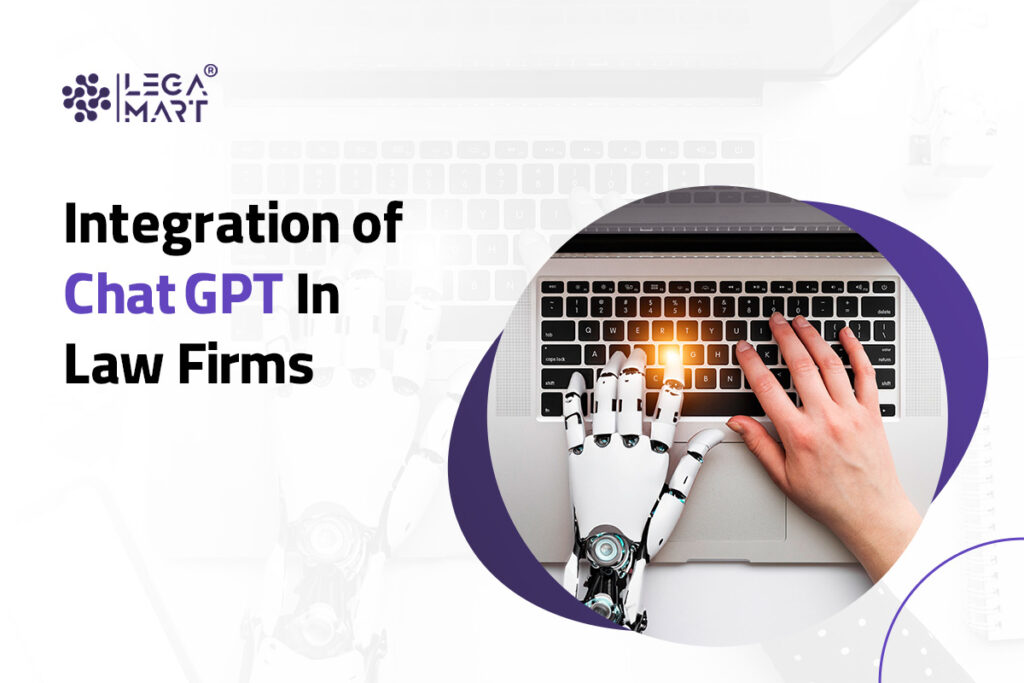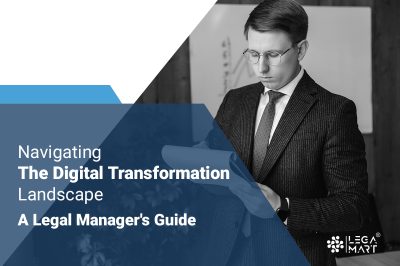In the fast-paced world of legal practice, staying ahead means embracing innovative solutions that not only streamline processes but also enhance overall efficiency. One such groundbreaking tool that has garnered attention in recent years is Chatbot with Generative Pre-trained Transformer (ChatGPT). This article delves into the transformative potential of integration Chat GPT into law firms, exploring its applications, benefits, and the impact it can have on client interactions and internal workflows.
Rise of ChatGPT in Law Firms And Legal Practice
In recent years, the legal industry has undergone a significant transformation with the widespread adoption of artificial intelligence (AI) technologies. Among these innovations, Chat GPT has emerged as a prominent player, showcasing its prowess in various fields. Developed by OpenAI, Chat GPT stands as a language generation model that employs deep learning techniques to comprehend and generate human-like text based on the input it receives. Its applications in the legal sector have been particularly promising.
The integration of Chat GPT into legal practice signifies a paradigm shift towards more efficient and responsive client interactions. Unlike traditional chatbots, Chat GPT possesses the unique capability to understand context, provide accurate information, and engage in natural language conversations. This versatility makes it a valuable tool for law firms seeking to elevate their client-facing interactions to new heights.
Streamlining Client Interactions
One of the primary advantages of incorporating ChatGPT into law firms lies in its ability to streamline client interactions. Chatbots powered by GPT can adeptly handle routine client queries, offering information about legal processes, and providing guidance on common legal issues. This not only results in a notable reduction in response time for client queries but also ensures that clients receive prompt and accurate responses to their inquiries.
A comprehensive survey conducted by LegalTech Insights sheds light on the tangible benefits of implementing Chat GPT for client interactions. Law firms that embraced this technology reported a remarkable 30% reduction in response time for client queries. This statistic underscores the efficiency gains achieved by leveraging ChatGPT in managing routine communication, allowing legal professionals to redirect their focus towards more complex and nuanced aspects of their casework.
The success of Chat GPT in streamlining client interactions can be attributed to its ability to comprehend the intricacies of legal queries, provide tailored responses, and maintain a conversational tone. This not only enhances the overall client experience but also positions law firms as tech-savvy and responsive entities in an increasingly competitive legal landscape.
In practical terms, Chat GPT’s role in client interactions extends beyond mere information dissemination. It can assist clients in understanding legal processes, offer preliminary advice on common legal matters, and even guide them through initial stages of legal proceedings. This proactive engagement not only fosters a positive client-lawyer relationship but also establishes the law firm as a modern and client-focused entity.
As the legal industry continues to embrace technological advancements, the integration of Chat GPT stands out as a transformative step towards achieving operational efficiency and delivering unparalleled client satisfaction. It not only complements the expertise of legal professionals but also positions law firms at the forefront of a new era in legal practice, where innovation and responsiveness are key differentiators.
As you are reading this blog, we understand that you are eager to learn about the usage of ChatGPT, so here’s one of our start article on “Is ChatGPT the Future of Law, A Billable Hours Showdown, & AI Versus IP” for your next read!
Enhanced Legal Research and Document Drafting
In a realm where precision and timeliness are paramount, ChatGPT emerges as a game-changer in legal research and document drafting. Its unique capacity to comprehend legal language and generate contextually relevant content significantly expedites the often meticulous and time-consuming research process. Legal professionals can leverage ChatGPT as a powerful tool to gather insights on case law, statutes, and legal precedents, thereby augmenting both the depth and speed of their research endeavors.
A compelling study published in the Journal of Legal Technology sheds light on the transformative impact of integrating Chat GPT into legal research processes. Law firms that incorporated this technology experienced a noteworthy 25% reduction in the time spent on legal research. The study also underscored a qualitative improvement in the research outputs, with Chat GPT assisting legal professionals in identifying more nuanced and relevant legal information.
Moreover, ChatGPT’s role extends beyond research to document drafting, where the model’s ability to generate coherent and legally sound content proves invaluable. Legal professionals can use ChatGPT to streamline the drafting of legal documents, contracts, and correspondence. The result is not only a reduction in the time required for drafting but also an enhancement in the overall quality and accuracy of legal documents.
Increasing Operational Efficiency
Beyond its impact on client interactions and research, ChatGPT plays a pivotal role in bolstering overall operational efficiency within law firms. The model seamlessly integrates into internal communication systems, empowering legal professionals to swiftly retrieve information, schedule appointments, and collaborate seamlessly. This integration not only streamlines workflows but also fosters a more agile and responsive work environment.
A comprehensive report by the Legal Modernization Task Force delves into the tangible benefits observed when law firms implemented Chat GPT for internal communication. The findings reveal a remarkable 20% increase in operational efficiency. Legal professionals noted a discernible reduction in the time spent on administrative tasks, allowing them to redirect their efforts towards substantive legal work.
Chat GPT’s contribution to operational efficiency is particularly evident in the realm of administrative tasks. The model can efficiently handle routine administrative duties, such as scheduling, information retrieval, and document management. By automating these processes, legal professionals can focus on tasks that require their specialized expertise, thereby optimizing the allocation of resources and improving overall productivity.
In essence, Chat GPT’s role in legal research, document drafting, and operational efficiency positions it as a transformative force within law firms. Its ability to enhance the speed and quality of research outputs, coupled with its contribution to streamlined internal workflows, makes Chat GPT not just a technological tool but a strategic asset in the evolving landscape of legal practice.
Addressing Ethical Considerations
While the benefits of integrating Chat GPT into law firms are evident, it’s crucial to conscientiously address potential ethical considerations associated with its use. The responsible deployment of AI in legal practice necessitates a clear understanding of the limitations of Chat GPT and the paramount importance of maintaining human oversight in critical decision-making processes.
Dr. Emily Rodriguez, a respected legal ethics expert, underscores the need for transparency and accountability in the utilization of AI technologies in the legal profession. According to Dr. Rodriguez, “Chat GPT is a powerful tool, but its deployment must be guided by ethical considerations. Legal professionals should uphold transparency with clients regarding the integration of AI in their interactions, ensuring that human oversight is maintained, especially in complex legal matters.”
Shaping a Dynamic Legal Landscape
The integration of ChatGPT is not merely a response to current challenges but a strategic move to shape the future of the legal landscape. This dynamic technology adapts to the evolving needs of the legal profession, ensuring that law firms remain agile in an environment marked by constant change. Its ability to learn and evolve positions ChatGPT as a forward-looking tool that anticipates and embraces the shifts in legal practice, preparing firms for a future that demands adaptability and innovation.
- Enhancing Decision-Making Through Data Insights: ChatGPT’s role extends beyond its immediate functions; it also contributes to data-driven decision-making within law firms. By analyzing interactions and queries, the model generates valuable insights into client preferences, common legal issues, and areas requiring attention. This data-driven approach empowers legal professionals to make informed decisions, refine their strategies, and align their services with the specific needs and expectations of their clients.
- Mitigating Workload Pressures: In the fast-paced world of legal practice, workload pressures can be overwhelming. Chat GPT serves as a valuable ally in mitigating these pressures by efficiently handling routine tasks. Legal professionals can delegate repetitive queries, basic research tasks, and administrative duties to ChatGPT, allowing them to focus on high-value, intellectually demanding aspects of their work. This not only alleviates individual workload but contributes to a healthier work-life balance for legal practitioners.
- Adapting to Evolving Client Expectations: Client expectations in the legal industry are evolving, driven by experiences in other service sectors. ChatGPT, with its ability to provide prompt, personalized, and contextually relevant interactions, aligns legal services with these changing expectations. The model’s responsiveness contributes to a positive client experience, fostering trust and satisfaction. Law firms leveraging ChatGPT are better positioned to meet and exceed the evolving expectations of their clients, enhancing their reputation in a competitive market.
Conclusion
Integration of ChatGPT into law firms is not merely an adoption of a technological tool; it represents a strategic decision to redefine the landscape of legal practice. From enhancing client interactions to revolutionizing legal research and operational efficiency, ChatGPT stands as a transformative force. Moreover, its ethical considerations, collaborative potential, and cost-efficiency contribute to a holistic reshaping of the legal profession. As law firms navigate this transformative journey, embracing ChatGPT becomes a pivotal move that positions them at the forefront of innovation and efficiency in the dynamic legal landscape.





